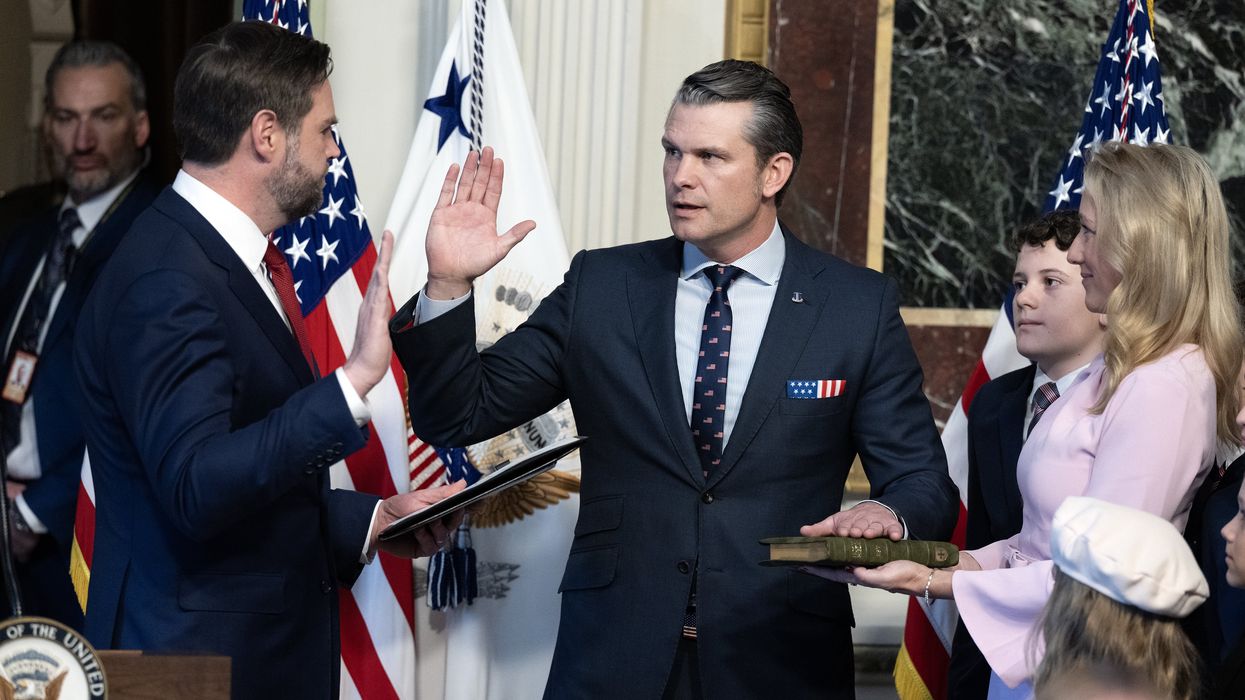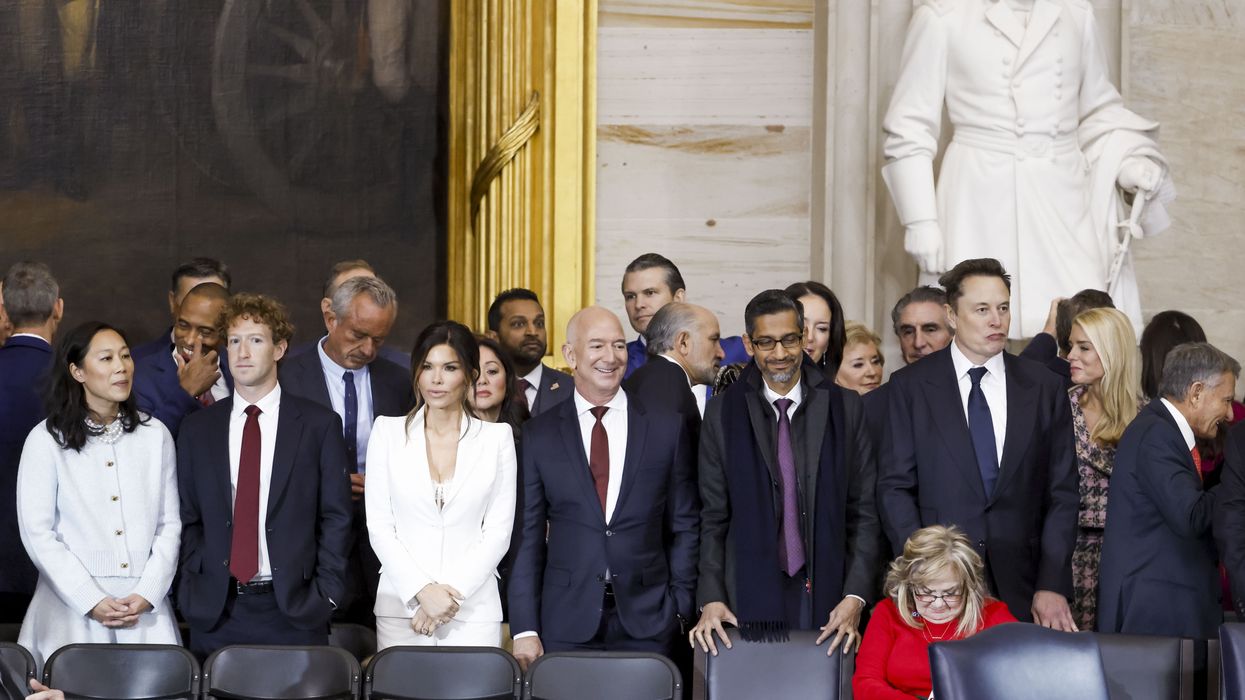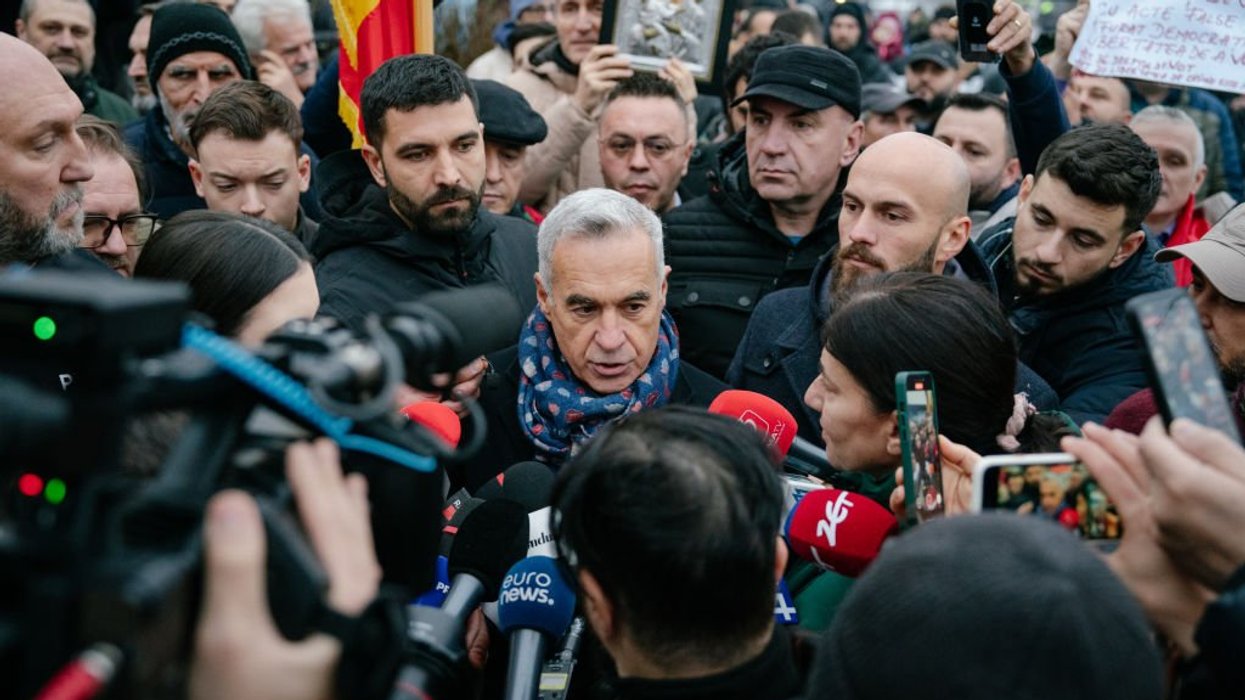Ed Schultz: Thanks to a lot of Republican policies, the city is now filing for bankruptcy. Now, it's the largest public sector bankruptcy in U.S. history, and the consequences could be devastating, if you care about people. The already small force of police, firefighters, and EMTs are in danger of future layoffs. That's only going to make it worse. Roughly 30,000 retired workers are concerned about their pensions, you know, things that they're counting on. Make no mistake: Detroit is going bankrupt is exactly what the Republicans want.
Let me give you the history of Detroit. As Pat said a minute ago, they haven't had a Republican since 1961, but it's really, it's really important to understand 1961. Let me ‑‑ let me start with the situation today and then we're going to go back to 1961. In 1960 Detroit had the highest per capita income in the United States. In 1960 they had the highest per capita income in the United States. Now, what happens when somebody is rich, when somebody is fat and sassy? We know it because we've seen it with our own society in the United States. As a whole, the United States, when it was sitting at the top, that's when we started saying, but you know what? We can screw with this a little bit. You know these principles; we still have some poor. And I hate to quote a crazy person like Jesus, but there will always be the poor among us, always. You are never going to get rid of all of the poor and lift every soul out of poverty. How do I know? Because I've been rich and I've been poor. I will probably be poor again someday in my life. But it doesn't matter, as long as I have the opportunity to try again. And there will always be those people that you can never help. There will always be those people ‑‑ I have friends in my life, and I know you do too. I have friends in my life that they ask for help, but they will never do the things that really will change their lives. You know what it is. And I speak as an alcoholic. I know. There were people, when I was drinking, that would say to me, "Glenn ‑‑" you know the truth, in fact, I'm sitting really close to a friend who said, "It's not that hard. It's not that hard. The truth is really simple. You just have to do a few things." Well, I didn't want that truth and so I wouldn't change my life and so I destroyed myself. But that's okay because that worked out in the end. We have a great opportunity... unless we don't learn from the past.
In 1960 Detroit had the highest per capita income in the United States. Today poorest large city in the United States. Once the fourth largest city in the nation, Detroit's population was shrunk from 1.5 million in 1970 to less than 700,000. Detroit's median household income today is $27,000 compared to the state median income of $48,000. Detroit's poverty level is 36.2%. The rest of the state, 15%. Detroit's unemployment rate is now over 18%. Only 53% of Detroit's residents can be part of the labor force. 45.7% have no job and are not even looking. 35% of Detroit's residents are now on food stamps. The out‑of‑wedlock birthrate in Detroit is more than 75%. 363,281 housing units are in Detroit. 99,000 of them are vacant. The Detroit murder rate is 11 times, 11 times higher than the murder rate in New York City. Detroit currently faces an estimated $14 billion in long‑term debt. Now how, how did a city that was the highest per capita income in the United States in 1960 get here? Well, as I said, Detroit hasn't had a Republican mayor since 1961 and has only had one Republican elected to the Detroit city council since 1970. So there's no way this is a GOP failure. But let's not make this about politics. What happened?
In 1960 they had a Republican mayor. They were riding high, but a new guy came to town. A new democratic mayor. 1961 was the year. He was white, but he understood civil rights, he said. He was a democratic mayor and his name was Jerome Cavanagh. He was elected by promising to give the black population the civil rights they lacked, which is great. We want to make sure everybody has the civil right to be who you are. You know, the reason why Detroit grew so fast is because Detroit didn't care for a long time, compared to the South, didn't care what your color was; could you do the job.
Once he was elected, he did everything in his power to bring the taxpayer‑funded government benefits to the black community. He was the only elected official in the U.S. to serve on President Johnson's Model Cities task force. Now, what was the Model Cities task force? What was that? What was he trying to do to Detroit? Well, he thought that there was a model out there that was great. He thought there was a model out there that could take the most prosperous city in the United States of America and make it even better because there was somebody else who had done this before. When they had revitalized Europe, but not Europe ‑‑ Eastern Europe ‑‑ to rebuild the urban areas in Eastern Europe, they looked to the model of the Soviet Union. At the time the socialists hailed the centralized approach to urban development. They said this is the Soviet innovation. This is it. That's why when you go and you look at New York City and you see things like Co‑op City, it looks like Poland. It looks like Russia. Because it was. They actually in the 1960s looked to the Soviet Union and said they have solved the problem. So he took the most prosperous city in America and said, we need to do the things that they are doing in the Soviet Union, a place that didn't have toilet paper for their citizens! And they implemented the model city system in a nine‑square‑mile section of Detroit.
To finance the project, he pushed a new income tax through and a new commuter tax. He promised the mostly poor and black residents of the model city area that the rich would pay for all of the benefits. He bought their votes with money he was taking from the rich residents. More than $400 million was spent on the model city program. The federal government democratic city mayors were soon telling people where to live, what to build, what businesses they could open, when their businesses had to close. In return the people received cash and they received training and education and healthcare.
This caused the greatest resentment among the population of Detroit that anybody has ever seen in America. It helped trigger the breakdown of civil order and the shrinking of the city's population. In 1967 after the police broke up a celebration at an after‑hours club, one of the neighborhoods began to riot. It ignited the worst race riot of the decade. Black‑owned businesses were looted and burned to the ground. 40 people were killed. 5,000 were left homeless. Democratic administrations after Jerome left engaged in massive giveaways in the form of high salaries, lucrative pensions, health benefit packages that you just couldn't get anywhere else. Public service was no longer service. This was the cream of the crop.
This caused the city's debt to grow quickly and dramatically. Public unions were also allowed to implement inefficient work rules and requirements that raised the cost of doing business in the city. Today more than 80% of the city's $14 billion in debt is due to the pensions and the benefit packages of those government workers. The same Democrat‑fostered union mentality took hold in the private sector as well, to the point where Detroit's auto industry which had formed the city's employment backbone began moving to right‑to‑work states in the South that were far less hostile. Much more affordable. They took a city where everybody ‑‑ I shouldn't say everybody. There will always be poor among us, but it was the most prosperous city in the nation. And they drove business out and they started just racking up the debt. And they made service inside the government much more appealing than actually getting a job someplace else. The private sector's demise reflected the fact that half of Detroit's top 10 employers, half of Detroit's top 10 employers are governmental entities. The city has 11,400 workers, followed by the Detroit public schools at 10,951. So the schoolchildren have less than 11,000 but the city government itself has 11,400. Two healthcare systems and the federal government round up the top five. The big government mentality of teachers unions harmed the Detroit public schools. In 2003 there was a Detroit businessman. He was a philanthropist. His name was Robert Thompson. He offered to give $200 million to a foundation to open 15 new charter high schools in Detroit because he knew things weren't working in 2003 and we had to do something. He withdrew his proposal, said "I can't do it anymore because the teachers unions." They argued that the charter schools would drain millions of dollars from the public schools. And then the excessive regulation in Detroit, multiple inspections and inspection fees, incomprehensible building requirements, expensive mandatory public hearings, arbitrary discretion of the officials, lengthy process delays the entrepreneurs from starting their own businesses. Nobody even wants to start a business venture or improve their existing one. According to one survey in Detroit, 56% of small business owners don't even know if they're operating in compliance with Detroit law. They have no idea. Detroit has the highest big city property taxes in the nation, the highest per capita tax burden in Michigan. Property assessments remain overly inflated, amounting to as much as ten times the market price on the property.
In 2011 Detroit ranked first among the 50 largest U.S. cities in taxes and last among property values. Detroit taxes on a $150,000 house were $4,885, twice the national average. And then you go into corruption. And that's a very long list. This is not, this is not a Republican or conservative failure. This isn't even a democratic failure or idea. This is a progressive/socialist/Communist utopia. And that always fails. Don't let them rewrite history.











